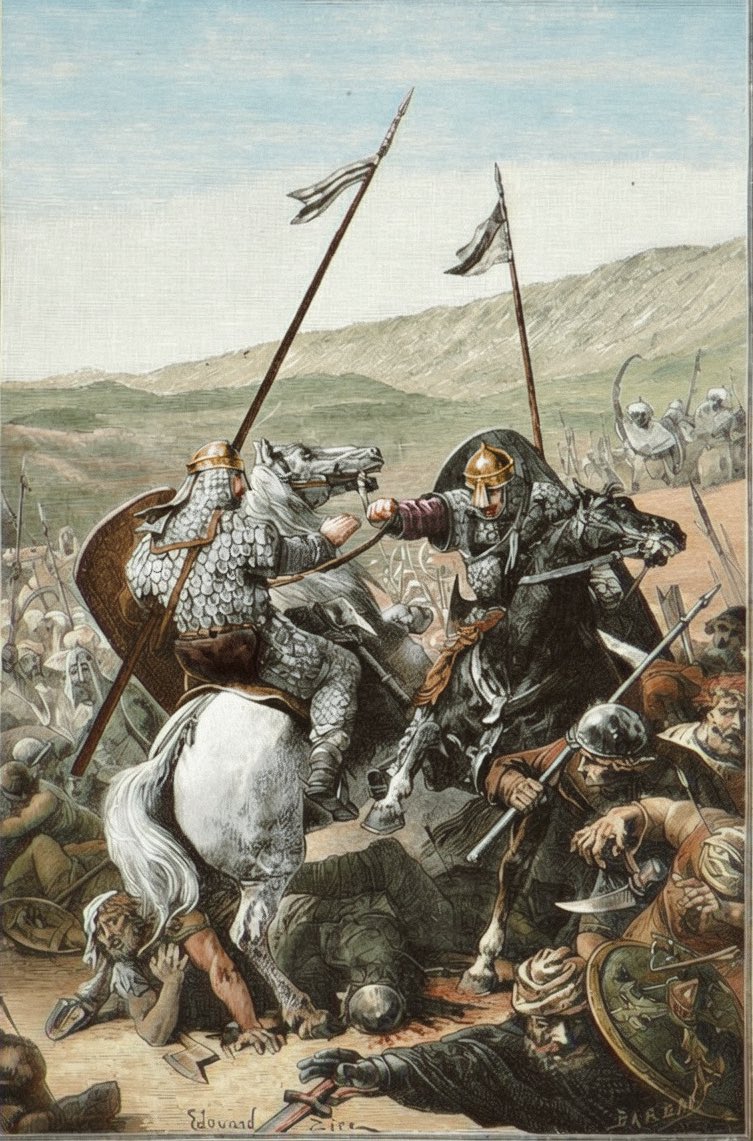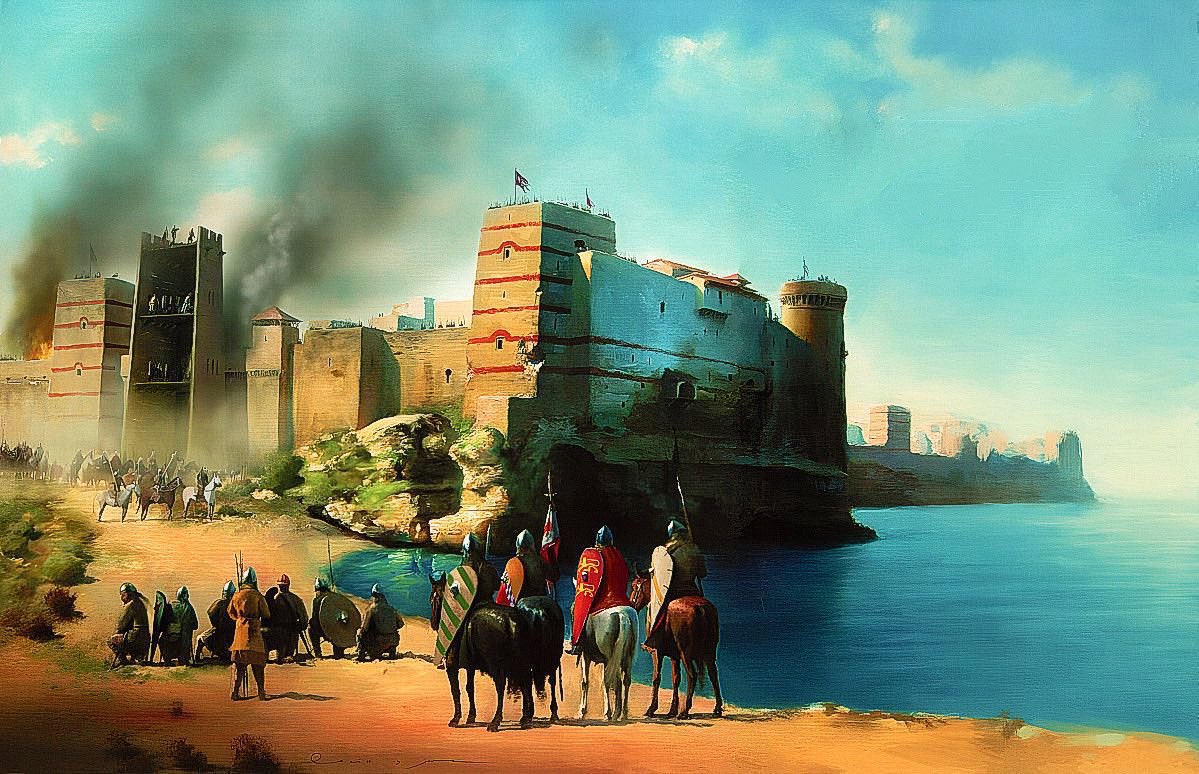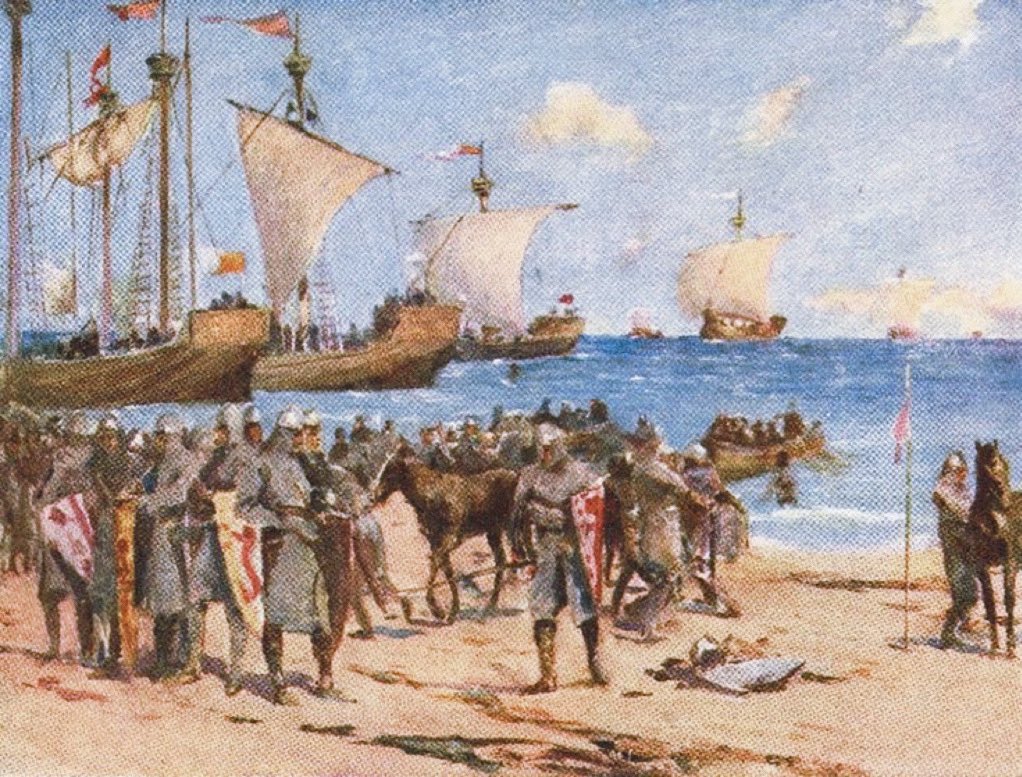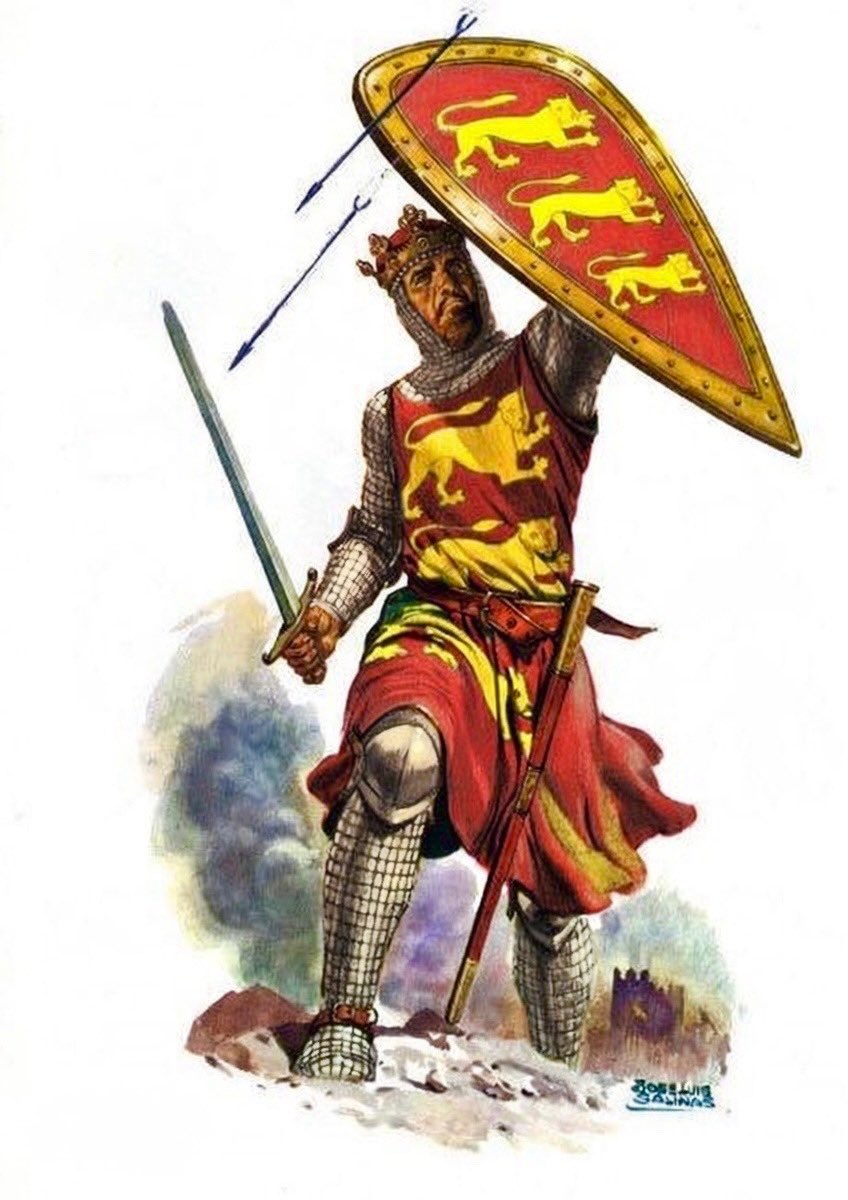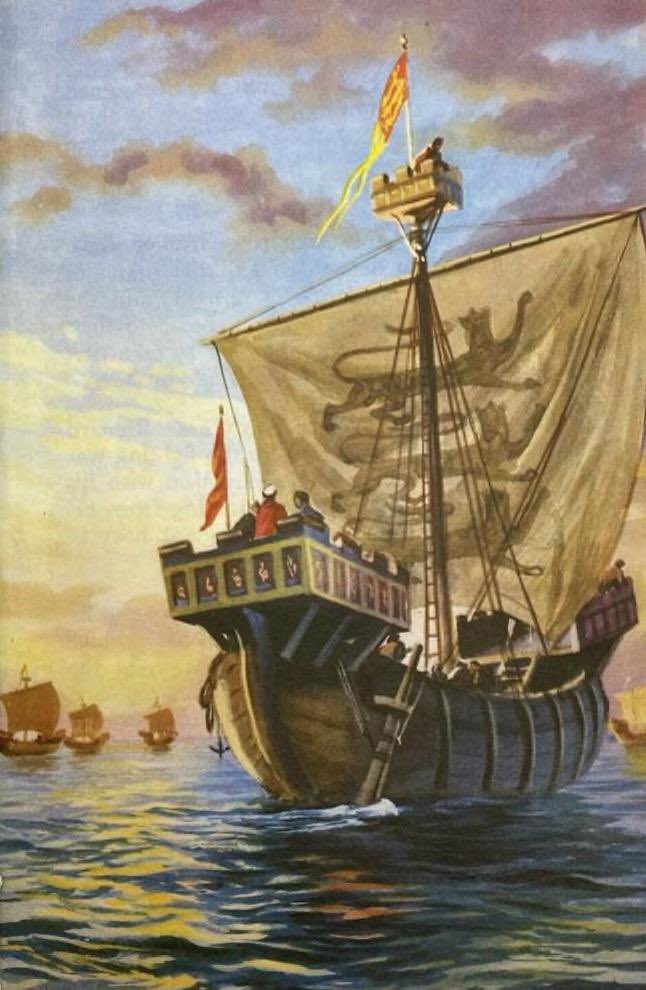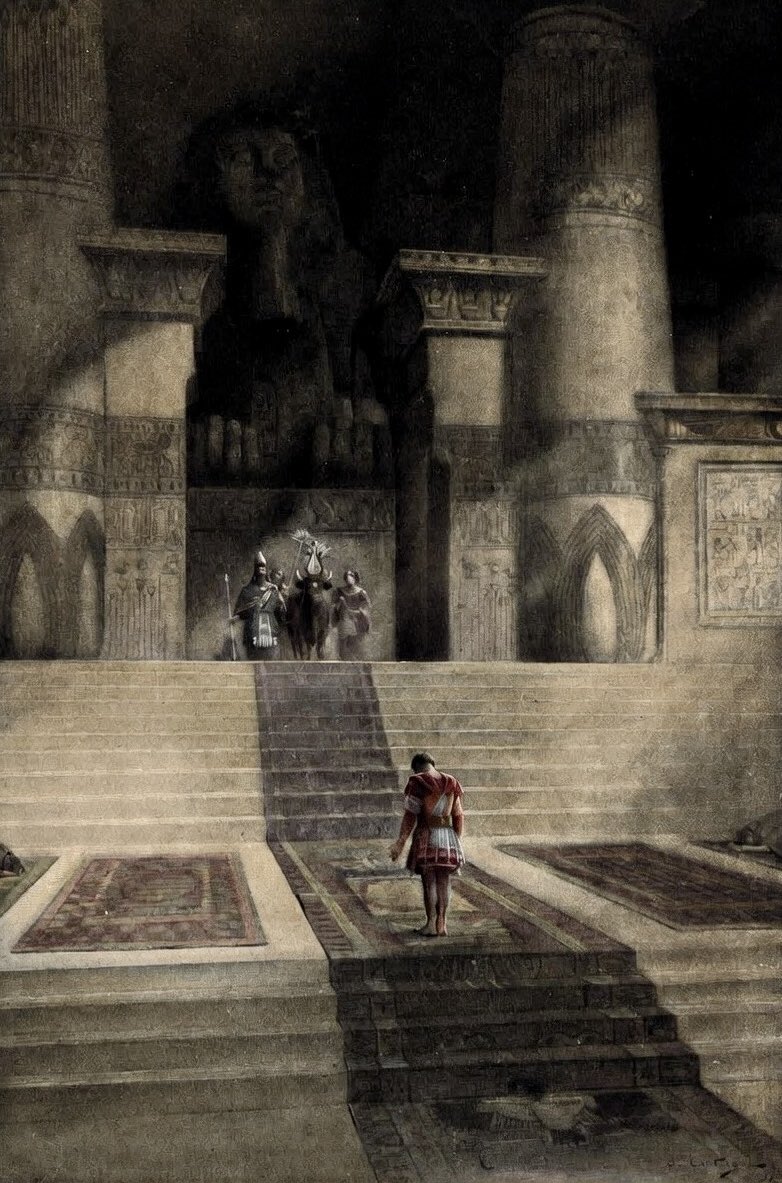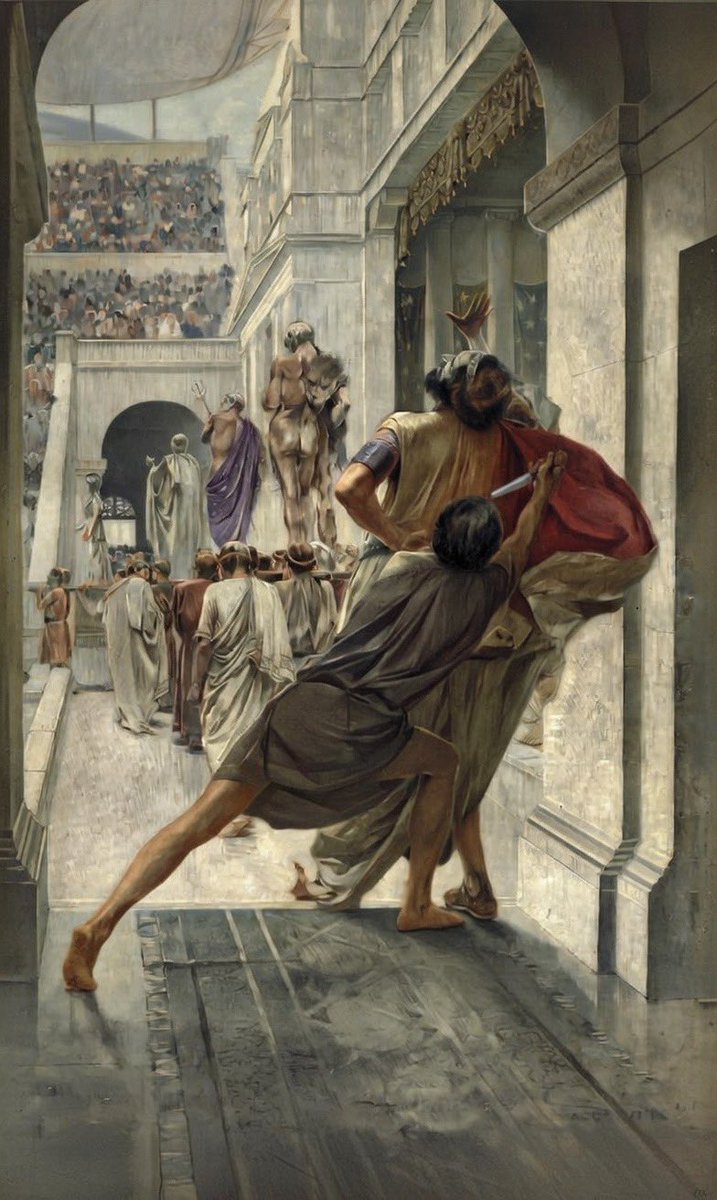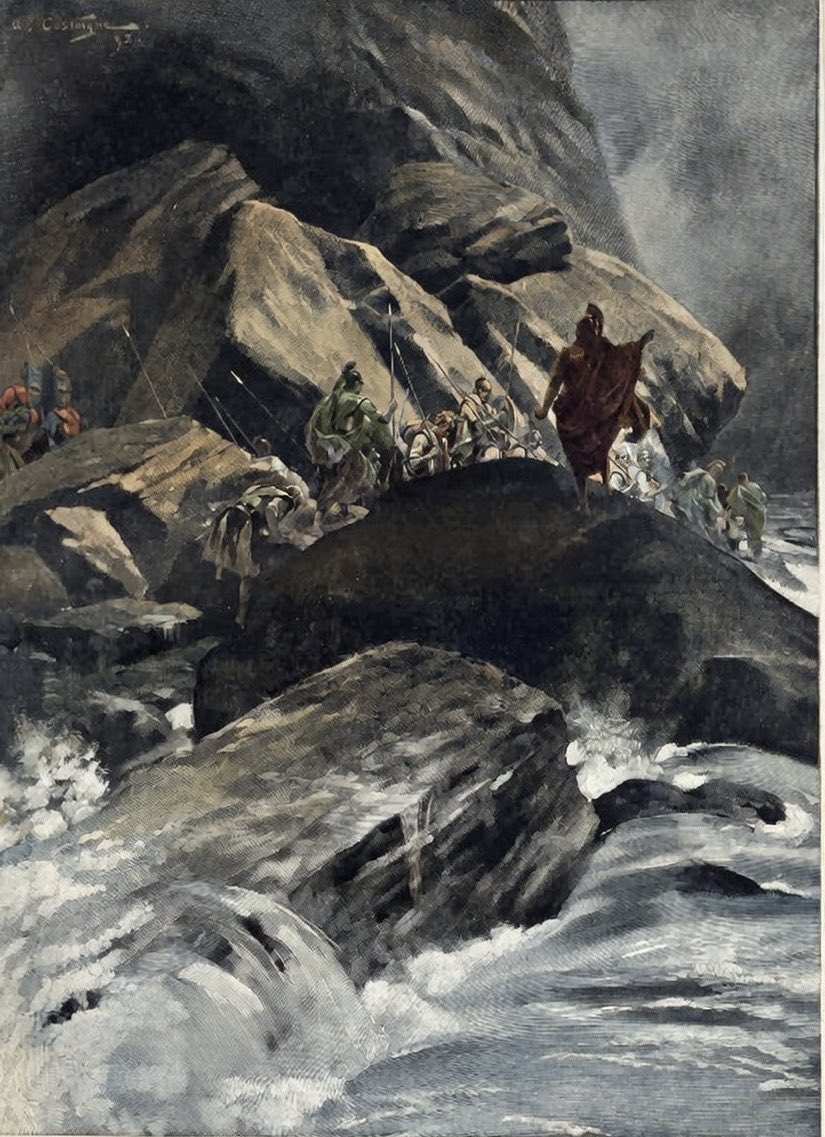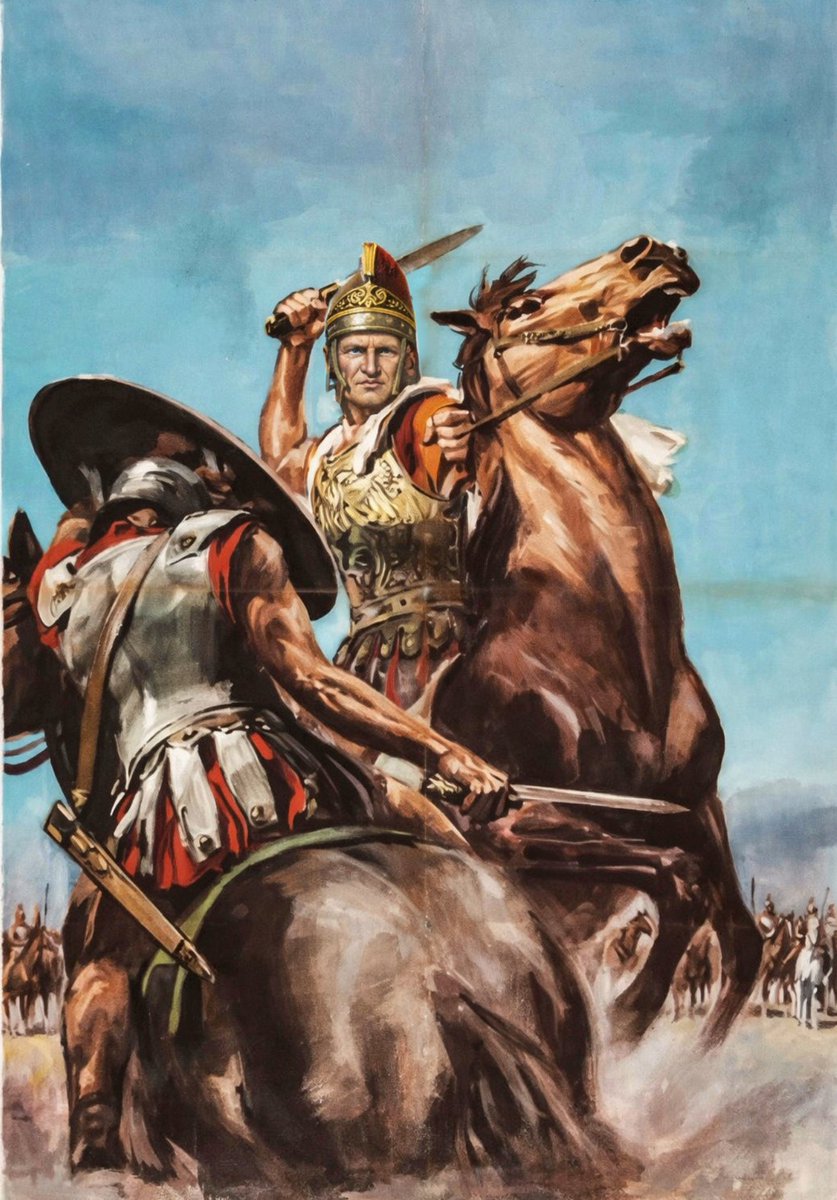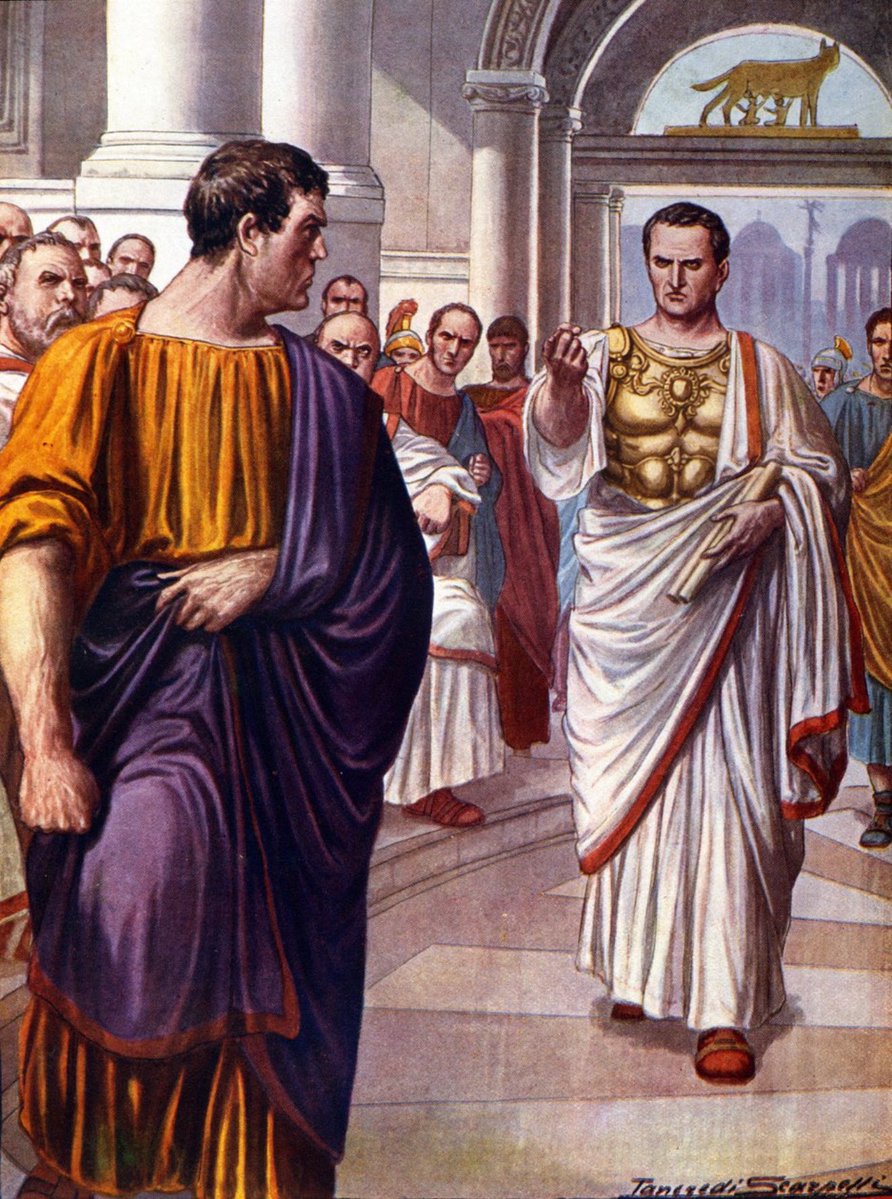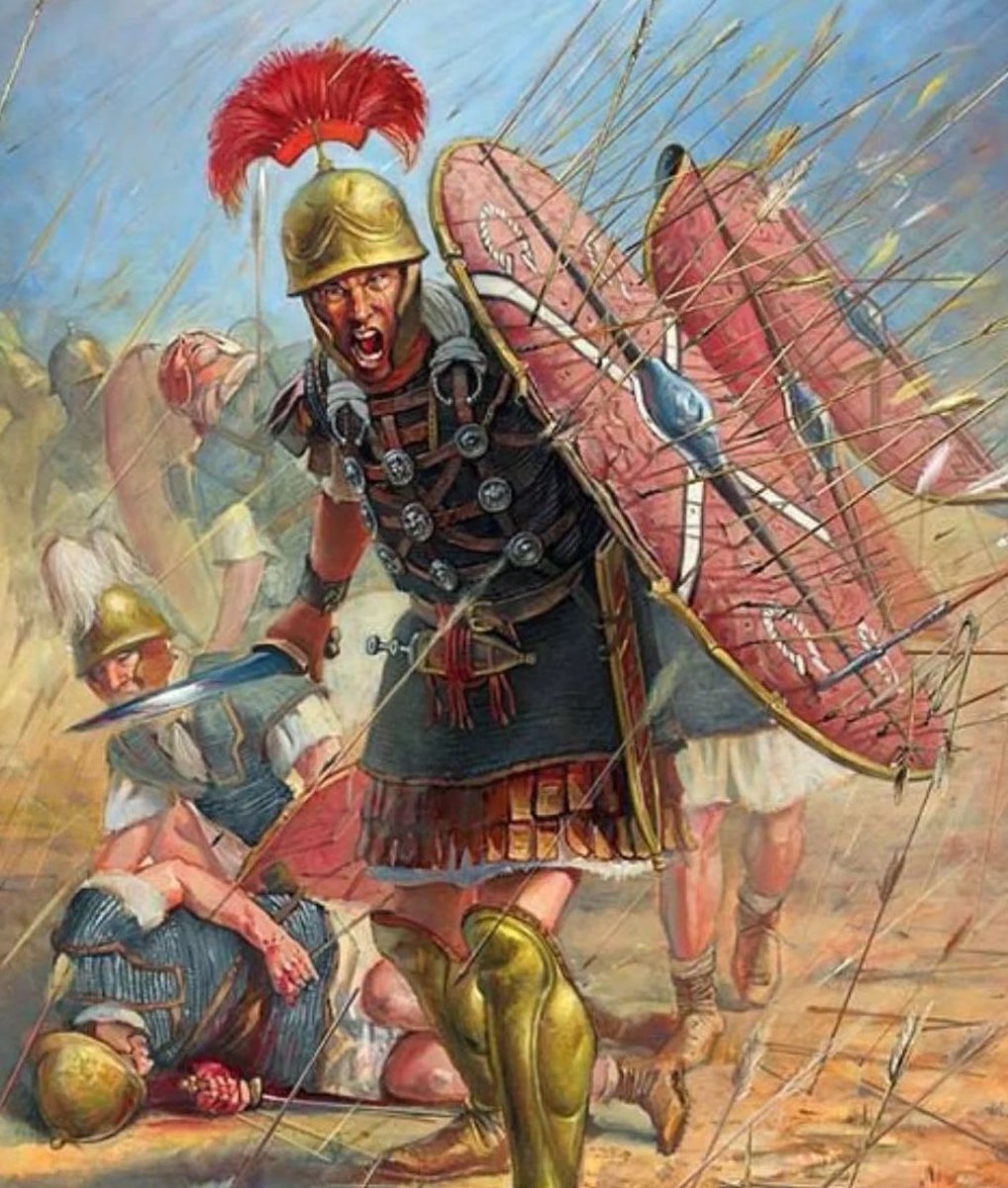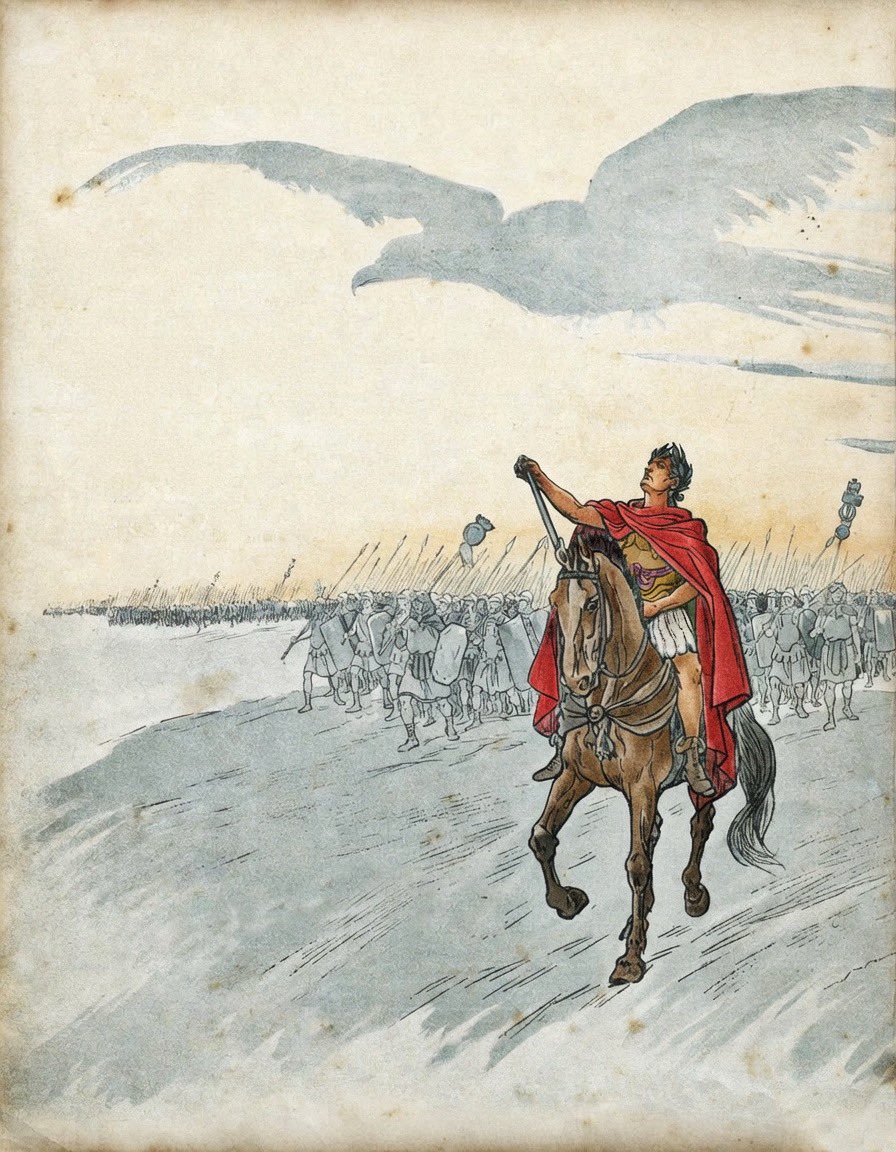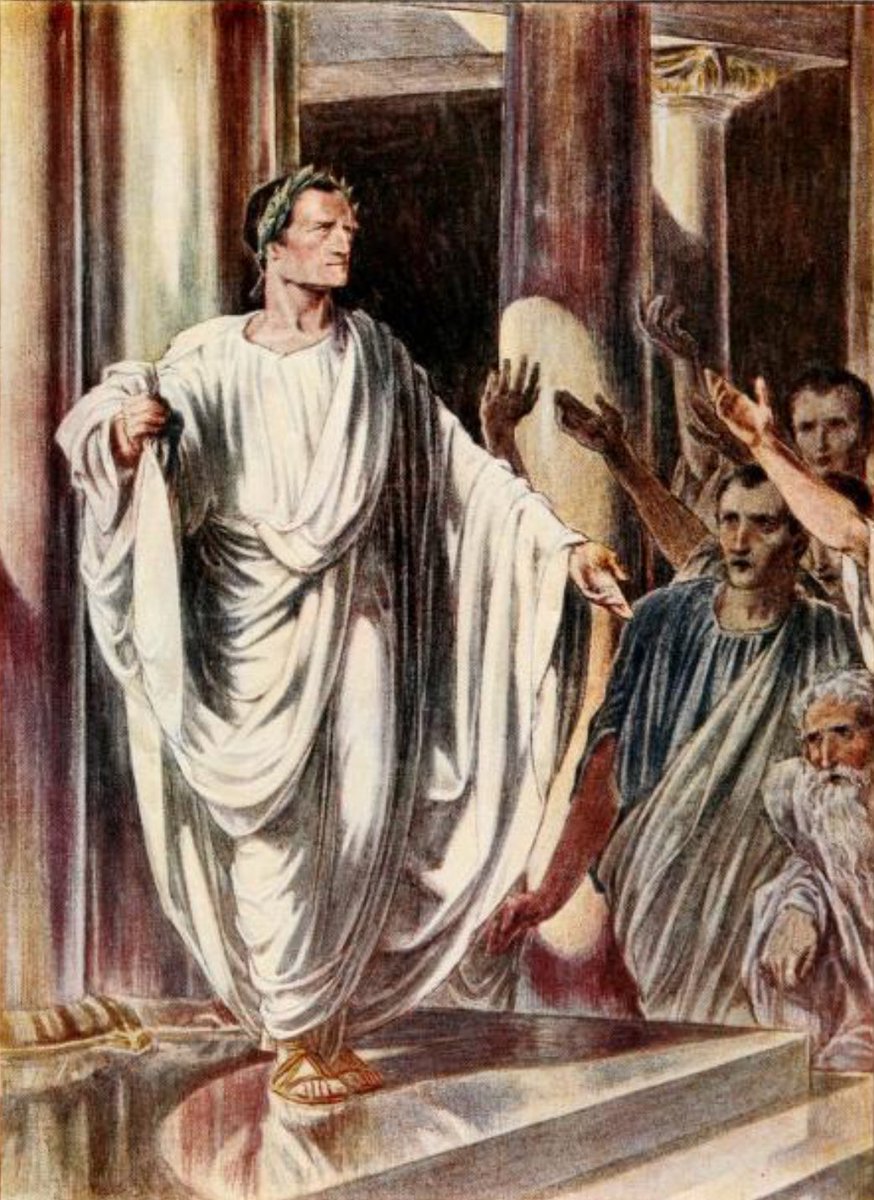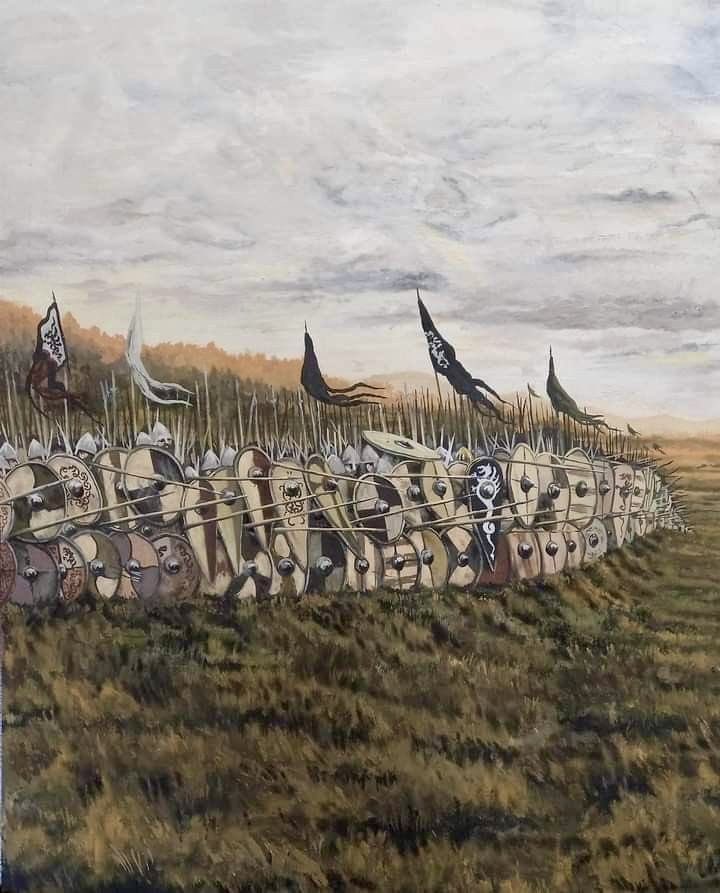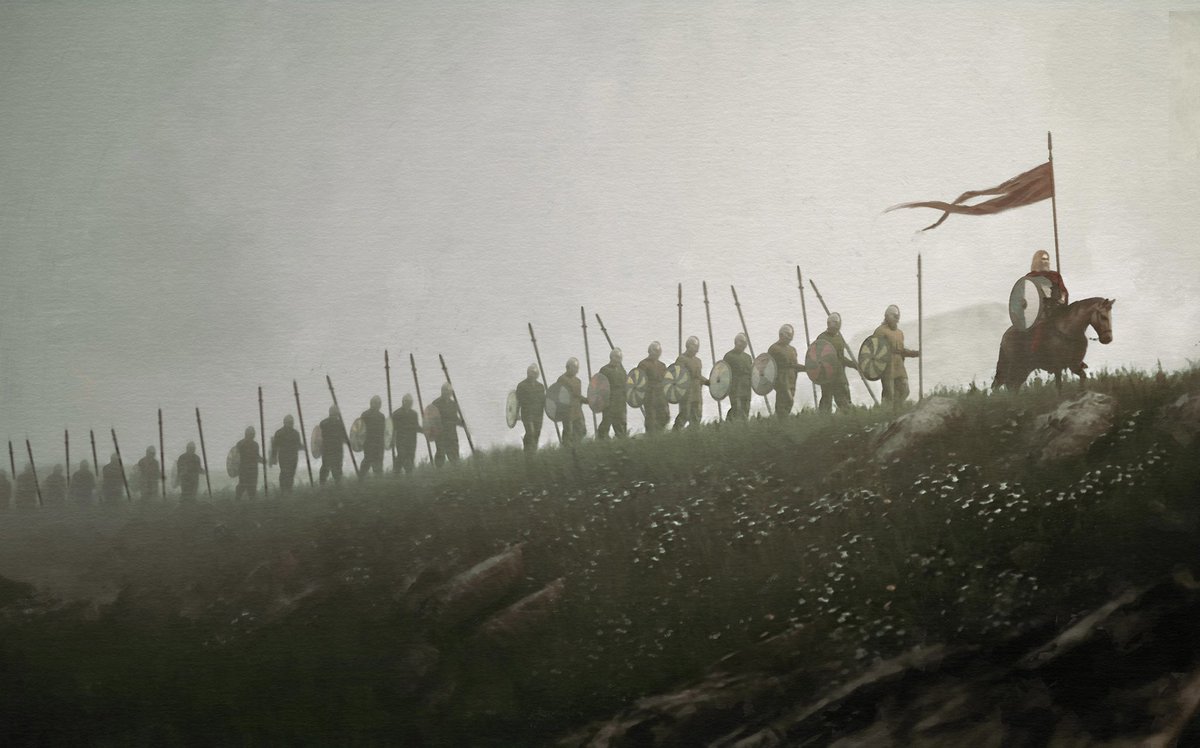Today in AD 721,
Odo of Aquitaine led a thunderous attack on the Muslims besieging Toulouse and dealt a vicious blow to the rampaging forces of Jihad!
[Thread]🧵
Odo of Aquitaine led a thunderous attack on the Muslims besieging Toulouse and dealt a vicious blow to the rampaging forces of Jihad!
[Thread]🧵

• Jihad •
After the death of Muhammad, his followers invaded the Roman Empire and Persia.
Both empires suffered devastating defeats at the battles of Yarmouk and al-Qadisiyyah, respectively.
The Muslims captured the Levant from the Romans and Iraq from the Persians before effectively destroying the remnants of the Persian army at Nahavand in 642.
After the death of Muhammad, his followers invaded the Roman Empire and Persia.
Both empires suffered devastating defeats at the battles of Yarmouk and al-Qadisiyyah, respectively.
The Muslims captured the Levant from the Romans and Iraq from the Persians before effectively destroying the remnants of the Persian army at Nahavand in 642.

• Hispania •
In AD 711 a Muslim force had invaded Hispania from North Africa and defeated the Gothic king Roderic at Guadalete.
From there they captured most of Hispania, pushing refugees and defeated warriors north and many took refuge in mountainous region of Asturias and supported the Hispano-Roman Pelagius of Asturias.
In AD 711 a Muslim force had invaded Hispania from North Africa and defeated the Gothic king Roderic at Guadalete.
From there they captured most of Hispania, pushing refugees and defeated warriors north and many took refuge in mountainous region of Asturias and supported the Hispano-Roman Pelagius of Asturias.

• Gaul •
The Umayyad wāli al-Khawlani built a new army to attack Aquitaine and in 719 his forces captured Narbonne.
His next target was Toulouse, the most important city of Aquitaine, which was nominally under the sovereignty of the kingdom of the Franks, but in practice was ruled autonomously by Odo.
The Umayyad wāli al-Khawlani built a new army to attack Aquitaine and in 719 his forces captured Narbonne.
His next target was Toulouse, the most important city of Aquitaine, which was nominally under the sovereignty of the kingdom of the Franks, but in practice was ruled autonomously by Odo.

Odo was not in Toulouse and when the Muslims attacked in early 721 he immediately sought to gather a large army to relieve the city.
He implored Charles Martel, the ruler of the Franks, to assist but Charles refused to help a rival ruler and was also engaged in warfare with the Saxons.
He implored Charles Martel, the ruler of the Franks, to assist but Charles refused to help a rival ruler and was also engaged in warfare with the Saxons.

After months of siege attrition, Toulouse could not hold on for much longer, but all was not lost for Odo was coming.
He had gathered a large army of troops from Aquitaine and Gascony, and even some Franks.
Odo’s army assailed the Muslims from behind while the men of the city sallied forth! The Umayyad force was scattered and Odo cut them down as they fled!
He had gathered a large army of troops from Aquitaine and Gascony, and even some Franks.
Odo’s army assailed the Muslims from behind while the men of the city sallied forth! The Umayyad force was scattered and Odo cut them down as they fled!

In a letter to the Pope, Odo claimed he killed 375,000 enemy troops, an obvious exaggeration but one that clearly demonstrates how overjoyed he was with the extent of his victory.
11 years after the battle the Umayyads would return to avenge their loss against Odo, but this time he was to be aided by Charles Martel and the amassed power of the Franks, and an even greater victory followed.
11 years after the battle the Umayyads would return to avenge their loss against Odo, but this time he was to be aided by Charles Martel and the amassed power of the Franks, and an even greater victory followed.

• • •
Missing some Tweet in this thread? You can try to
force a refresh


